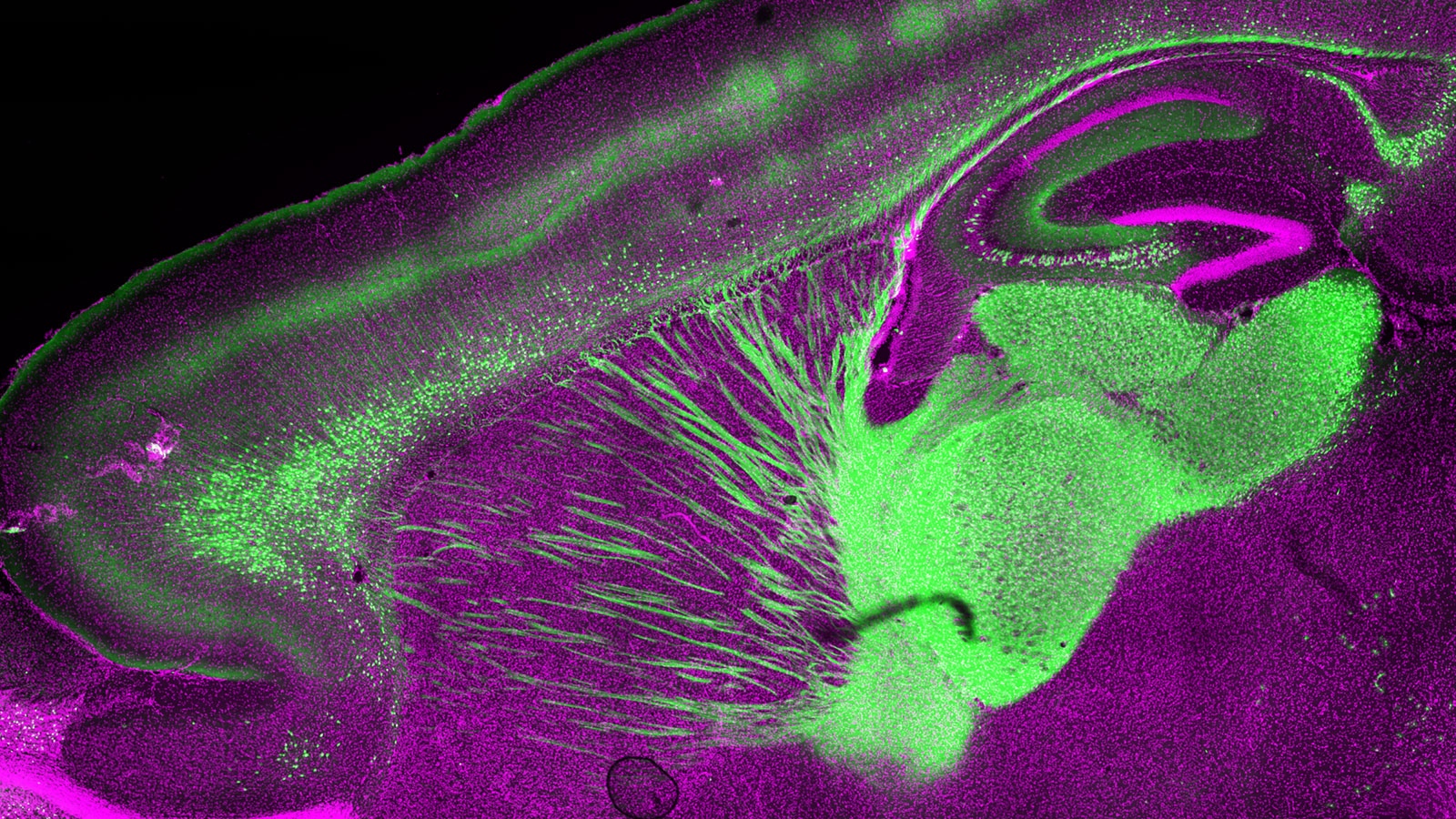Program Overview
Please reach out to Bruce Carter if you have any questions about the Neuroscience Ph.D. Program or the application process.
-
Bruce Carter
Director of Graduate Studies in Neuroscience
Associate Director for Education and Training, Vanderbilt Brain Institute
Professor of Biochemistry- 615-936-3041
- 625 Light Hall

We foster the development from trainee to independent research scientist and educator.
Individualized Attention
With 81 graduate students and 64 training faculty, our excellent student-teacher ratio results in extensive opportunities for interaction and exchange of ideas in a relaxed and collegial atmosphere. Our distinguished training faculty stem from diverse fields such as Psychology, Biochemistry, Molecular Physiology, and Pharmacology and capture the multidisciplinary nature of modern neurobiological inquiry.
Career Outlook
Graduates of our department are superbly prepared for a variety of career options in both academia and industry. Each student's program is designed to provide a broad-based education in neuroscience, yet accommodate individual needs and interests to allow students to become creative, independent scientists.
Students holding degrees in the biological or physical sciences, psychology, or biomedical engineering are especially encouraged to apply to the Neuroscience Ph.D. Program, but applicants from other fields will be considered.
Areas of Concentration
The Neuroscience Ph.D program offers two areas of concentration. Students have the option to emphasize either Cellular & Molecular or Cognitive & Systems neuroscience, preparing each trainee for a future in which neuroscientists must be able to navigate from molecules to cells to neural systems and behavior.
-
1
Cognitive & Systems
This path provides doctoral training with emphasis on cognitive neuroscience, sensory-motor systems, neuroimaging, neural development, synaptic plasticity, neurobiological basis of neuropsychiatric and neurodegenerative disorders, and targeted gene disruption in transgenic animals to ascertain the function of neural genes and establish disease models.
-
2
Cellular & Molecular
This path provides doctoral training with emphasis on neurogenetics and genetic dissection of neural development, molecular aspects of synapse formation and plasticity, structure and regulation of ion channels and transporters, targeting and signal transduction, psychotropic drug action, the molecular basis of neuropsychiatric and neurodegenerative disorders, and targeted gene disruption in transgenic animals to ascertain the function of neural genes and establish disease models.
Cellular & Molecular Application Tip
Students with broad biomedical interests are encouraged to apply through the Interdisciplinary Graduate Program in Biological and Biomedical Sciences instead of directly through the Neuroscience Ph.D. Program. This pathways provides a strong foundation in biomedical science prior to matriculation into neuroscience.
Students begin their first year with a general course in graduate level cellular and molecular biology and then begin specialized courses in Neuroscience in the spring semester of their first year.
Grants and Awards
University Tuition Scholarships are service-free awards that pay all or part of tuition costs. The following graduate awards are normally supplemented by a full University Tuition Scholarship, which usually includes student health insurance coverage:
- University Fellowships
- Graduate Teaching Assistantships
- Graduate Research Assistantships
- Traineeships
- Teacher Training Awards
The current stipend level for 2023-2024 is $36,500. In addition, applicants may be nominated at the time of application for Harold S. Vanderbilt graduate scholarships and other awards, which provide an additional stipend of up to $10,000 per year to students of exceptional accomplishment and high promise.
Training in Fundamental Neuroscience T32 Grant
The Neuroscience Graduate Program receives invaluable support from the "Training in Fundamental Neuroscience" NIH T32. Over 70 mentors across 22 departments within 4 schools and colleges are available to train students, with 65+ Neuroscience trainees earning PhDs in the past 5 years. Over 60 trainees have been supported by the T32 since its inception, with over a third subsequently securing their own fellowship funding. Program graduates have gone on to leadership positions in academia, industry, and additional research-related fields, providing a rich alumni network across multiple career tracks. The program includes works-in-progress seminars by all Neuroscience trainees, invited external seminar speakers including several suggested or hosted by trainees, and an annual retreat.
Graduate students interested in joining the training program should contact Dr. Bruce Carter, Associate Director for Education & Training and Director of Graduate Studies for the VBI.
Faculty interested in becoming T32 preceptors should contact Dr. Rebecca A. Ihrie or Dr. Lisa Monteggia, VBI Director.
-
Rebecca A. Ihrie
Associate Professor, Cell & Developmental Biology and Neurological Surgery
- 615-936-2951
- B2317 Medical Center North



